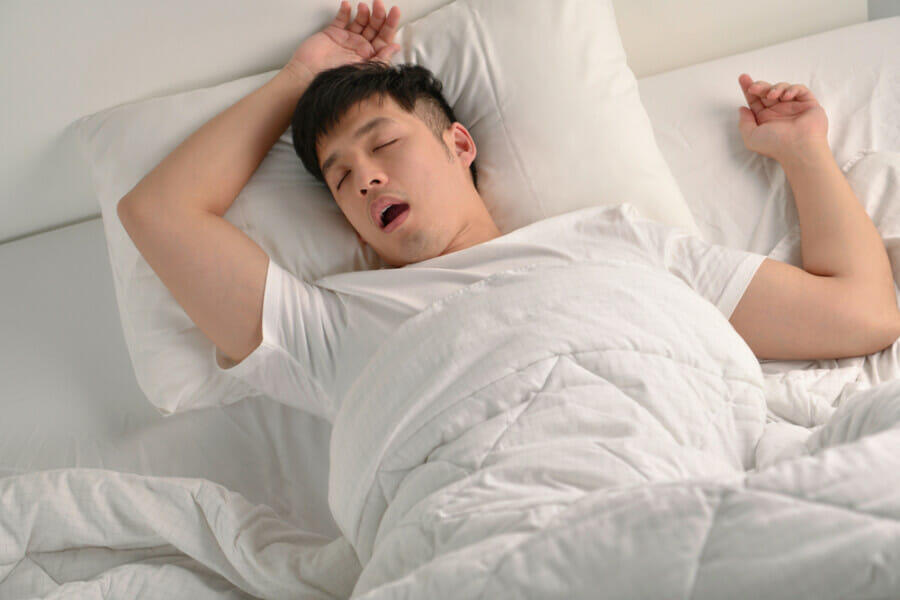A Snoring Mouthpiece Can Help Reduce Snoring
If you experience snoring issues, a snoring mouthpiece may assist in decreasing the loud sounds associated with snoring. These devices, typically available over the counter, come with features like manual jaw advancement and tongue restraining suction.
There is an adjustment period when using these devices. Generally, over-the-counter MADs and TRDs are priced around $50 to $150. It is advisable to consult a healthcare professional before purchasing one to get guidance on the most suitable device for your needs.
Tips for Usage
When using a snoring mouthpiece to tackle snoring problems, there are techniques you can adopt to lessen discomfort. Practicing mouth massage or using mouthwash that inhibits bacterial growth can help reduce discomfort associated with the device.
Proper oral hygiene practices can prevent issues like sores that some people encounter when using these devices.
A snoring mouthpiece is specifically designed to open nasal passages. Snoring happens when the soft tissues in the throat relax during sleep, narrowing the airway and resulting in air turbulence that causes the loud sound. There are various MADs available on the market, allowing you to find one that suits your situation best.
If you prefer a more budget-friendly option, you can choose a less expensive device. However, keep in mind that these devices are pricier than non-snoring mouthpieces, so it’s important to have a doctor’s recommendation before purchasing. Consulting your dentist before making significant mouth-related purchases is also advisable.
Apart from improving sleep quality, a snoring mouthpiece can help prevent other health issues resulting from sleep deprivation like mood swings and irritability. To learn more about sleep deprivation, visit: .
Where to Buy
Consider the price while choosing where to buy a snoring mouthpiece. While price matters, it is not the only factor. Often, good deals can be found online.
Before settling on a specific brand, check price comparisons and reviews to gauge its effectiveness. Waiting for discounts or sales can also help you get a better deal.
When purchasing an anti-snoring mouthpiece, consider your dental health. Leaving food particles in your mouth can lead to oral health issues. To mitigate risks, opt for a device with a money-back guarantee and ensure it fits comfortably.
Various mouthpiece options exist on the market, with MADs being a common choice. These mouthpieces feature thermoplastic material in upper and lower trays that can be customized by softening in hot water. Before molding the mouthpiece, ensure it fits snugly and aligns with your lips.
Enhancing Sleep
A snoring mouthpiece, also known as a mandibular advancement device, prevents the tongue’s base from falling back into the throat, potentially obstructing airflow while sleeping on your back.
This device functions by gently pushing the lower jaw forward, as the tongue muscles are connected to the lower jaw. It can aid in achieving a better night’s sleep. For reassurance on its efficiency, consult a doctor or sleep apnea treatment provider before usage.
Different mouthpiece options are available, with MADs being prevalent. These mouthpieces come with thermoplastic material in upper and lower trays that can be molded to shape. It is crucial to follow the manufacturer’s instructions, try on the mouthpiece first, and ensure a close fit to your lips.
Consult a dentist before purchasing a mandibular advancement device if you have a fixed bridge or implants, as the device’s design may impact your teeth. If you have a severe overbite, some mouthpieces may not fit correctly. In such cases, a Vital Sleep snoring mouthpiece, designed with ample jaw room for a secure fit, is recommended.
Utilizing a snoring mouthpiece can enhance your sleep quality. Seeking treatment for disruptive snoring or opting for noninvasive mouthpieces can improve your relationship with your partner, even though complete elimination of snoring may not be guaranteed.
Promoting Overall Wellbeing
A snoring mouthpiece is a simple device aimed at preventing the tongue from collapsing during sleep. It employs a gentle negative suction to the lower part of the tongue.
The mouthpiece facilitates mandibular protrusion, which can be adjusted as needed. Side orifices enable mouth breathing if nasal blockage occurs. Widely used by snorers, this device is an effective method to reduce somnolence and sleep apnea. For more information on sleep apnea, click .
If your snoring stems from a severe condition, seeking medical assistance is recommended. Snoring is a common symptom of obstructive sleep apnea, characterized by frequent pauses in breathing during sleep. A doctor may suggest a sleep test at home or a sleep laboratory.
Sleep deprivation can severely impact health and mood, including irritability and cognitive functions. Despite snoring issues, remember that it does not define your worth.
















